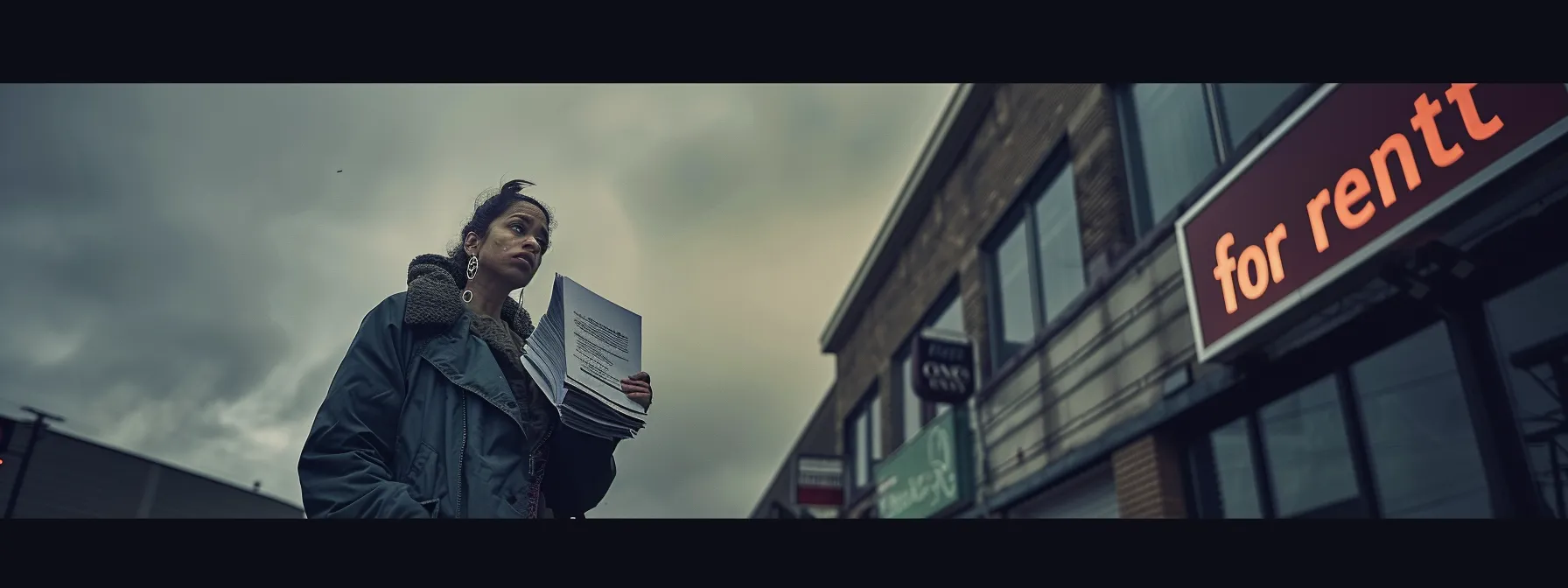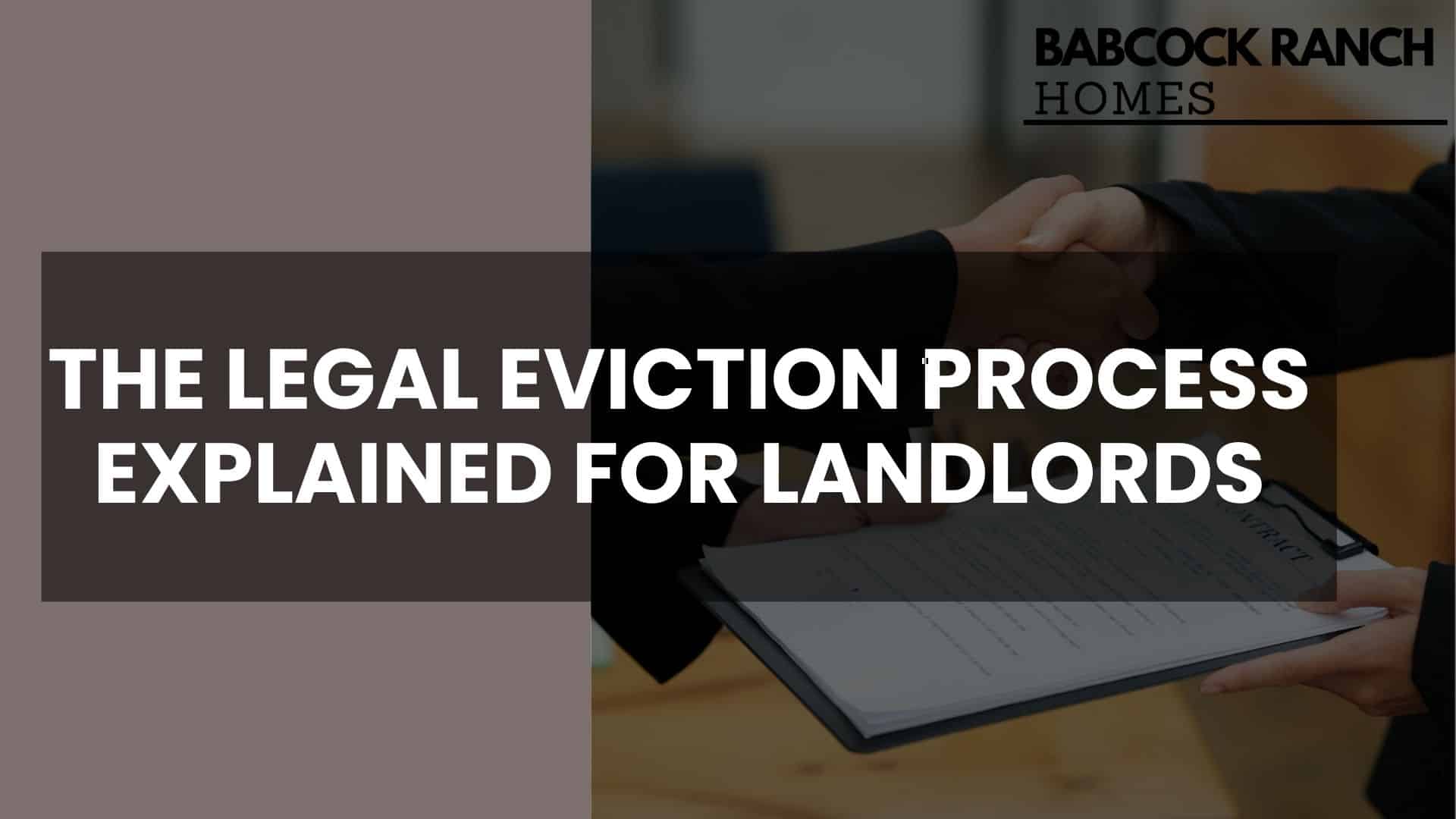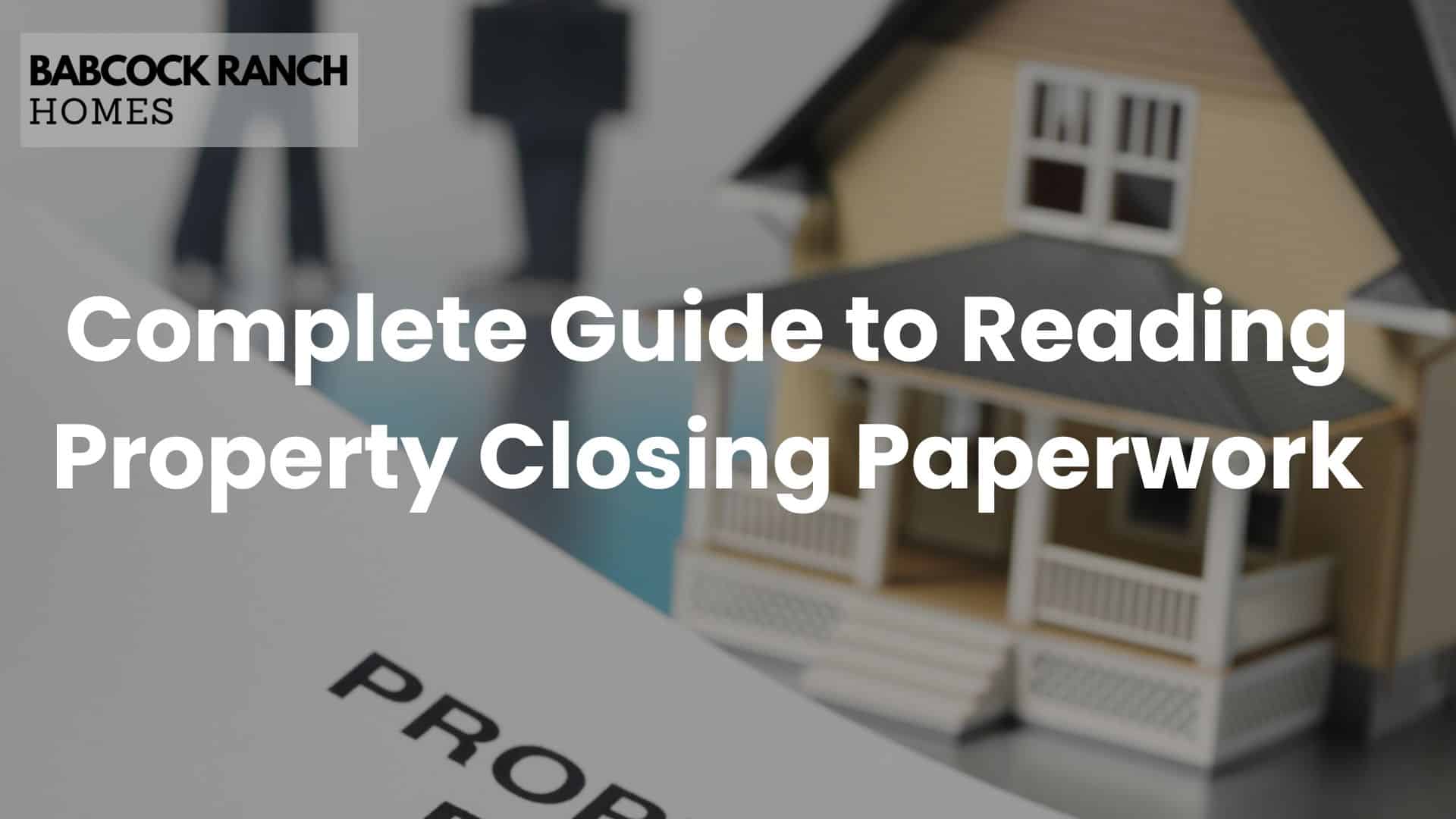Are you struggling to find a rental home due to a less-than-perfect credit history? Securing an apartment in 2024 can be a daunting hurdle for many, but this guide offers practical strategies to overcome financial obstacles. Readers will learn how to prepare their financial profile for apartment hunting and discover alternative rental options that accommodate a challenging credit background. Additionally, the article will provide insights into assistance programs and tips for credit repair to aid in future housing endeavors. By engaging with this content, readers will equip themselves with the knowledge to navigate the renting landscape, potentially reduce security deposits, and improve their management of personal finances.
Key Takeaways
- A low credit score can lead to higher deposits and stricter rental terms
- Proactive credit report reviews and debt negotiations can improve rental opportunities
- Co-signers and larger security deposits may enhance rental application success
- Strong rental history and financial habits can offset credit score concerns
- Regular credit monitoring and strategic financial planning are key to long-term stability
Understanding the Challenges of Securing an Apartment With Bad Credit in 2024

In 2024, individuals with less-than-ideal credit scores may find the apartment rental process increasingly challenging. A low credit score can significantly affect one’s rental applications, as creditors scrutinize financial histories more closely. Renters often encounter obstacles that can include stringent budget constraints and the need for larger cash deposits. Additionally, changes in rental market screening practices may demand more comprehensive reviews of potential tenants’ bank accounts and loan histories. This section delves into these issues, offering a clear understanding of the hurdles faced and practical strategies to overcome them. For more information, refer to our home buyers guide.
How Bad Credit Impacts Your Rental Applications
When individuals with a compromised FICO score seek to rent property, they often confront a harsh reality: their credit history can be a significant barrier. Landlords and property management companies typically use credit scores as a gauge of a potential tenant’s financial reliability. A low score may suggest to the property owner that the consumer poses a higher risk of late payments or defaulting on rent. Consequently, this can lead to either outright rejection or the imposition of stringent conditions such as higher deposits or proof of stable income.
For those navigating the rental market with a less-than-stellar credit history, understanding the implications is crucial: a low FICO score can limit one’s options and increase the financial burden through additional requirements set by landlords. To illustrate the journey one might face when securing an apartment with bad credit, consider the following steps:
- Assessment of credit score and debt history by potential landlords.
- Increased likelihood of application denial or requests for a co-signer.
- Requirement of higher security deposits or advance rent payments.
- Potential need for verifiable income that exceeds the standard requirements.
Common Obstacles Renters Face Due to Low Credit Scores
Renters with low credit scores often face a series of daunting hurdles when seeking to secure an apartment. Landlords may perceive them as high-risk tenants, leading to increased scrutiny during the application process. This can manifest in the form of higher security deposits, stringent credit limit checks, and even the requirement for additional home insurance policies. Moreover, individuals may find themselves having to provide proof of income that significantly surpasses what is typically acceptable, or they might be asked to pay more money upfront. These challenges not only complicate the path to renting but also place a heavier financial strain on potential tenants, particularly those who might already be managing existing debts or credit card repayments.
| Challenge | Impact on Renter | Potential Requirement |
|---|---|---|
| High Security Deposits | Increased upfront costs | Payment of additional funds |
| Credit Limit Checks | Thorough financial scrutiny | Proof of higher creditworthiness |
| Home Insurance Policies | Extra monthly expenses | Acquisition of comprehensive coverage |
| Proof of Income | Need to demonstrate financial stability | Documentation showing income above standard requirements |
Changes in Rental Market Screening Practices for 2024
In 2024, the rental market has adapted new screening practices that place greater emphasis on comprehensive tenant evaluations. Prospective renters may now be required to present letters of recommendation alongside traditional financial documents. This shift reflects a growing trend where landlords seek to understand the character and reliability of potential tenants beyond their credit scores. Additionally, the terms of contracts, including leases and insurance policies, have become more detailed, with clauses specifically addressing the responsibilities of tenants with a history of poor credit or mortgage defaults. These changes aim to create a more secure and transparent agreement between landlords and tenants, ultimately benefiting both parties.
| Screening Element | Description | Impact on Tenants with Bad Credit |
|---|---|---|
| Letters of Recommendation | Documents vouching for tenant’s reliability | Provides an opportunity to offset credit score concerns |
| Detailed Contracts | Leases with specific terms for financial accountability | Clarifies expectations, potentially increasing chances of approval |
| Insurance Requirements | Policies that protect property against tenant defaults | May increase upfront costs but offer long-term security |
Securing an apartment with poor credit is a tough battle. Now, let’s prepare your financial profile, the first step to victory in your apartment hunt.
Preparing Your Financial Profile Before Apartment Hunting

Before embarking on the quest for a new residence, individuals with credit challenges must take proactive steps to bolster their financial standing. Reviewing and improving one’s credit report, gathering bank statements as proof of steady income and employment, and collecting endorsements from previous landlords can significantly enhance the odds of securing a favorable rental agreement. These preparatory measures can mitigate the impact of credit card debt and past repossessions, presenting a more robust financial profile to potential landlords.
Reviewing and Improving Your Credit Report
Reviewing and improving one’s credit report is a critical step for those with credit challenges seeking to rent an apartment. It involves scrutinizing the report for inaccuracies, negotiating with creditors to resolve outstanding debts, and ensuring that all payments, especially those from paychecks, are recorded accurately. Demonstrating a history of timely payments can serve as a strong reference for potential landlords, reducing the likelihood of eviction due to financial instability. This proactive approach can lead to a more favorable assessment by property owners, even with a less-than-perfect credit history.
- Examine credit reports for potential errors and dispute any inaccuracies found.
- Engage in negotiation with creditors to settle debts or improve terms.
- Ensure all payments, particularly from recent paychecks, are up to date and reflected in the credit report.
- Use a history of consistent payments as a reference to demonstrate financial responsibility to potential landlords.
- Take steps to avoid situations that could lead to eviction, further strengthening one’s rental application.
Gathering Proof of Steady Income and Employment
As part of strengthening one’s financial profile, gathering verifiable proof of steady income and stable employment is essential. This evidence reduces the perceived risk of default, assuring landlords of the tenant’s ability to consistently meet rental fees and tax obligations. Tenants should prepare recent pay stubs, tax returns, and employment verification letters that clearly document their financial stability:
- Collect recent pay stubs that reflect a stable income.
- Organize tax returns from the past two years to demonstrate consistency in earnings.
- Obtain an employment verification letter to confirm the security of one’s job position.
Collecting Positive References From Past Landlords
Securing endorsements from previous landlords can be a pivotal step in overcoming the challenges posed by a low credit score in the real estate market. These references act as a testament to a renter’s reliability and timeliness in payments, which can persuade potential landlords to overlook credit discrepancies. Particularly in cases where a tenant has a history of consistent rent payment but is seeking to refinance or move due to changing circumstances, a positive landlord reference can serve as a powerful tool in policy negotiations, ultimately facilitating the apartment hunting process.
Your finances are in order; now confront the challenge of credit. Let’s navigate the waters of securing a lease when your credit history is less than perfect.
Effective Strategies to Secure an Apartment Despite Bad Credit

In the quest to secure an apartment with bad credit in 2024, individuals can employ several effective strategies. Offering a larger security deposit or paying rent in advance demonstrates financial commitment, while finding a reliable co-signer or guarantor can provide additional assurance to landlords. Highlighting a strong rental history and responsible habits can counterbalance credit concerns. Crafting a persuasive rental cover letter allows applicants to personally connect with landlords, and negotiating flexible lease terms can result in a mutually beneficial arrangement. These approaches, tailored to the finance and utility considerations of investment in real estate, particularly in competitive markets like New York City, can significantly enhance the likelihood of cost-effective leasing opportunities.
Offering a Larger Security Deposit or Paying Rent in Advance
In the competitive landscape of Florida’s real estate market, individuals with credit challenges can still secure an apartment by offering a larger security deposit or paying rent in advance. This gesture demonstrates to landlords a commitment to personal finance responsibility, potentially alleviating concerns raised by a credit bureau report. For those with a limited savings account, considering a roommate to share costs or exploring section 8 options may provide additional financial flexibility. Such upfront payments can serve as a tangible assurance of a tenant’s dedication to maintaining their rental agreement, thereby enhancing their credibility despite a lower credit score.
Finding a Reliable Co-Signer or Guarantor
Enlisting a reliable co-signer or guarantor can be a decisive factor for individuals with bad credit looking to secure an apartment in 2024. This strategy involves finding someone with a strong credit history who agrees to take on the financial responsibility should the tenant fail to pay rent. It’s a practical solution that can reassure landlords of the tenant’s commitment and financial backing, thereby increasing the likelihood of a successful rental application. The co-signer’s willingness to support the applicant not only demonstrates trust but also provides a safety net for property owners, making it a win-win for all parties involved.
| Strategy | Benefit to Tenant | Benefit to Landlord |
|---|---|---|
| Co-signer/Guarantor | Enhanced credibility and rental application strength | Financial assurance and reduced risk of rent default |
Highlighting Strong Rental History and Responsible Habits
For individuals with credit challenges, showcasing a strong rental history and responsible financial habits can be a persuasive element in securing an apartment. Landlords value tenants who have demonstrated consistent on-time payments and proper care of previous rental properties. By providing a detailed record of past rental agreements, including contact information for former landlords who can vouch for their reliability, applicants can effectively mitigate the concerns associated with a low credit score.
Creating a compelling narrative of one’s rental background is essential:
- Compile a comprehensive list of previous residences, highlighting the duration of stay and adherence to lease terms.
- Include references from past landlords and property managers who can confirm timely rent payments and property maintenance.
- Present a clear record of any security deposit returns as evidence of responsible tenancy.
Writing a Persuasive Rental Cover Letter to Landlords
Composing a persuasive rental cover letter offers an opportunity for prospective tenants to connect with landlords on a personal level, showcasing their reliability and commitment to maintaining a property. This document should succinctly highlight the applicant’s strengths, such as a history of timely payments or stable employment, and address any credit concerns with transparency and a plan for ensuring financial responsibility. By articulating their case in a clear and professional manner, individuals can enhance their appeal to landlords, even when their credit history is less than ideal.
Negotiating Flexible Lease Terms to Suit Both Parties
In the dynamic Florida real estate market, negotiating flexible lease terms can be a strategic move for those with credit challenges seeking to rent an apartment in 2024. Tenants may propose shorter lease durations as a trial period to build trust with landlords or suggest incremental rent increases tied to timely payments, demonstrating their commitment to financial responsibility. This approach not only provides a tenant with the opportunity to prove their reliability but also offers landlords a sense of security, fostering a rental agreement that accommodates the financial realities of both parties.
Even with a less-than-perfect credit score, one can find a place to call home. Let’s now consider the untapped rental opportunities that welcome those with financial blemishes.
Exploring Alternative Rental Options Suitable for Bad Credit

For individuals with less-than-perfect credit seeking housing in 2024, alternative rental options present viable solutions. Exploring rentals from private owners, considering roommates to share responsibilities, and seeking properties with second-chance leasing programs are strategies that can circumvent traditional barriers. Each approach offers unique advantages for securing a lease, despite credit challenges. The following sections will detail how these options can provide a pathway to a new home for those with credit concerns.
Seeking Rentals From Private Owners Instead of Large Complexes
For those grappling with credit challenges in 2024, seeking rentals from private owners rather than large apartment complexes can be a strategic move. Private landlords may be more flexible and willing to discuss terms without the rigid criteria often imposed by larger entities. This personalized approach can lead to successful leasing agreements for individuals with bad credit, as private owners may prioritize rental history and employment stability over credit scores.
Engaging with private owners directly allows for a more nuanced conversation about one’s financial situation and the opportunity to establish trust through open dialogue:
- Present a clear case for reliability despite credit issues, emphasizing a record of timely rent payments and steady employment.
- Discuss potential for larger deposits or advance rent to demonstrate commitment to the lease.
- Explore the possibility of flexible lease terms that can be adjusted as the tenant proves their financial responsibility over time.
Considering Roommates to Share Housing Responsibilities
For individuals facing credit challenges in 2024, sharing an apartment with roommates is a practical strategy that can ease the financial burden of renting. This approach not only splits the cost of rent and utilities, making it more manageable for each party, but also may improve the overall attractiveness of the application to landlords. By pooling resources, roommates can collectively present a stronger financial front, potentially compensating for individual credit shortcomings and increasing the likelihood of securing a lease agreement.
When considering roommates to share housing responsibilities, it’s essential to outline the benefits and expectations clearly:
- Discuss how expenses and chores will be divided to ensure a harmonious living situation.
- Agree on a method for timely and equitable payment of rent and utilities to maintain financial stability.
- Choose roommates with a sense of financial responsibility, as their actions can impact one’s credit and rental history.
Looking for Properties That Offer Second-Chance Leasing
Exploring second-chance leasing programs can be a lifeline for those with credit challenges in 2024. These properties offer individuals the opportunity to secure a lease despite past financial missteps, focusing on their current ability to pay rent rather than their credit history. By providing a platform for tenants to demonstrate financial responsibility, second-chance leasing can pave the way for rebuilding credit and gaining stable housing, making it a valuable option for prospective renters seeking a fresh start.
Navigating the rental landscape with a blemished credit history is only the beginning. Now, let’s uncover the support networks and legal safeguards that stand ready to help you secure a place to call home.
Utilizing Assistance Programs and Legal Protections

In 2024, individuals with bad credit seeking housing have several avenues for support, including housing assistance programs, legal protections, and community resources. Applying for housing assistance programs can provide financial aid and resources to those in need. Understanding one’s rights under fair housing laws ensures protection against discrimination during the rental process. Accessing community resources offers additional support and guidance for renters with credit challenges. Together, these strategies form a comprehensive approach to overcoming the hurdles of securing an apartment with a less-than-ideal credit score.
Applying for Housing Assistance Programs Available in 2024
In 2024, individuals with credit challenges can seek support through housing assistance programs, which offer a range of services from financial aid to counseling. These programs are designed to help applicants navigate the complexities of the rental market, providing a bridge to secure stable housing. By applying for such assistance, renters can gain access to resources that not only facilitate the leasing process but also contribute to the improvement of their credit standing over time.
Understanding Your Rights Under Fair Housing Laws
Understanding one’s rights under Fair Housing Laws is essential for individuals with bad credit seeking to rent an apartment in 2024. These laws prohibit discrimination based on race, color, national origin, religion, sex, familial status, or disability, ensuring that all applicants have an equal opportunity to secure housing. It is important for renters to recognize that a low credit score does not exempt them from these protections, and they should remain vigilant against any unfair treatment during their search for an apartment. By being informed about these legal safeguards, tenants can confidently advocate for themselves if they encounter discriminatory practices.
Accessing Community Resources for Renters With Bad Credit
Accessing community resources offers a practical avenue for renters with bad credit to find support and guidance in the 2024 housing market. Local housing agencies and non-profit organizations often provide workshops, financial counseling, and assistance programs tailored to individuals facing credit challenges. These resources can empower renters to improve their credit profiles and navigate the complexities of securing an apartment, ensuring they are equipped with the knowledge and tools necessary for a successful rental experience.
With the right assistance and legal safeguards in place, your financial foundation is set. Now, let’s focus on strengthening your credit to pave the way for future triumphs.
Building and Repairing Your Credit for Future Success

Building and repairing one’s credit is a strategic endeavor crucial for securing future rental opportunities and achieving long-term financial stability. This section introduces effective credit-building techniques, emphasizes the importance of regular credit monitoring and strategy adjustments, and outlines planning for sustained financial health. Readers will gain insights into practical methods for enhancing their credit profiles, thereby improving their prospects in the competitive rental market.
Implementing Credit-Building Techniques That Work
Implementing credit-building techniques that work involves a strategic approach to financial activity, such as securing a credit card designed for building credit and ensuring timely payments on all accounts. This consistent behavior positively impacts one’s credit score, making future apartment hunting less daunting. It is essential for individuals to engage with financial products that report to the major credit bureaus, thereby ensuring their efforts are accurately reflected in their credit reports, which landlords will review during the rental application process.
Monitoring Credit Progress Regularly and Adjusting Strategies
Regular monitoring of one’s credit progress is a critical step in adjusting strategies to improve creditworthiness. By reviewing credit reports frequently, individuals can identify areas for improvement and track the effectiveness of their credit-building efforts. This vigilance allows for timely interventions, such as addressing discrepancies or making strategic credit decisions that align with their goals of securing an apartment and enhancing financial stability.
For those aiming to secure an apartment with bad credit, the following actions form a roadmap to a healthier credit score:
- Obtain credit reports from all major bureaus to ensure accuracy of information.
- Analyze credit utilization and payment history to pinpoint improvement opportunities.
- Implement changes, such as increasing payment frequency or reducing debt, and observe the impact on credit scores over time.
Planning Ahead for Long-Term Financial Stability and Better Rental Opportunities
Planning for long-term financial stability is a proactive measure that not only enhances one’s credit score but also broadens future rental opportunities. By establishing a budget that prioritizes debt reduction and savings, individuals can create a financial buffer that makes them more attractive to potential landlords. Consistent financial planning and disciplined spending habits signal to property owners a tenant’s commitment to fiscal responsibility, thereby increasing their chances of securing a lease even with a history of bad credit.
Conclusion
Securing an apartment with bad credit in 2024 requires a proactive approach, including improving one’s credit report and demonstrating financial stability. Offering larger security deposits, finding a co-signer, and showcasing a strong rental history can significantly increase the chances of a successful lease agreement. Exploring alternative rental options and utilizing assistance programs can provide valuable pathways for those with credit challenges. Ultimately, these strategies empower individuals to overcome financial hurdles and secure housing, underscoring the importance of preparation and informed decision-making in the rental market.




















